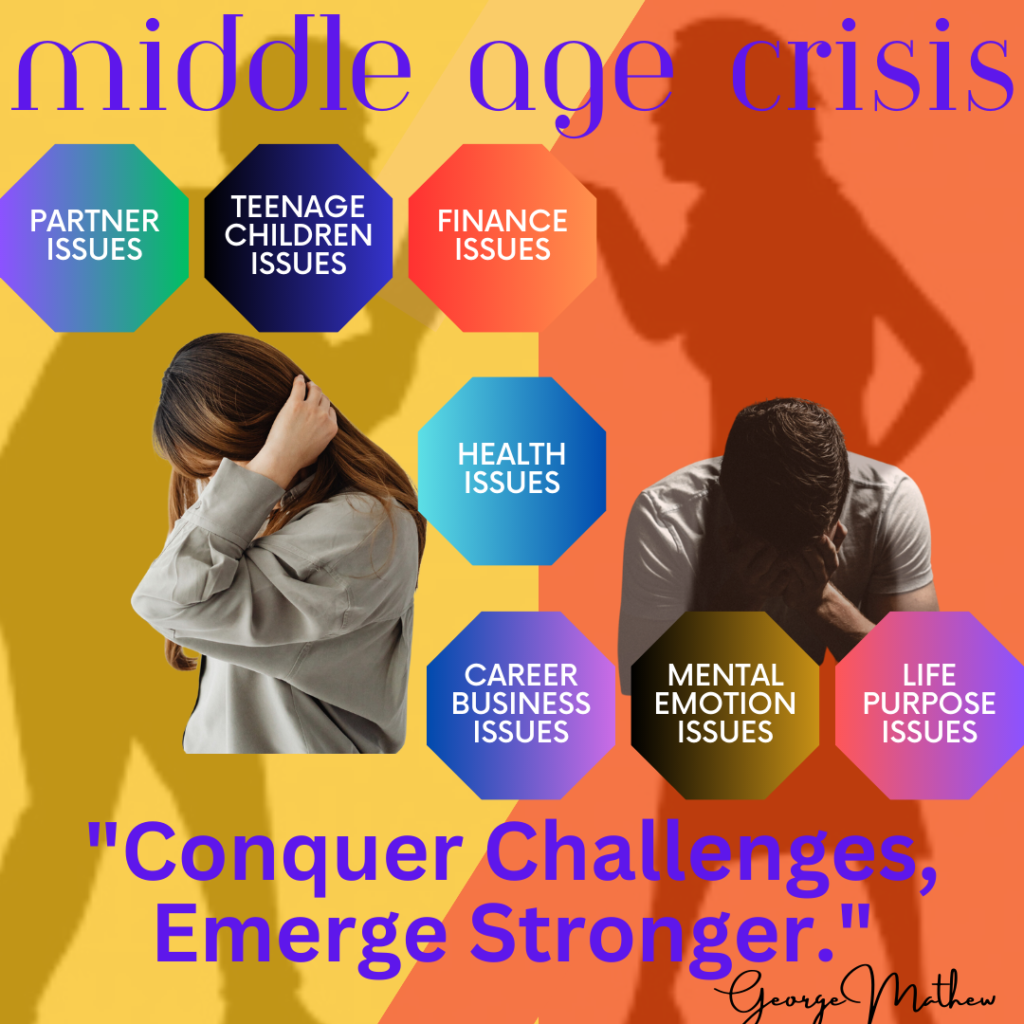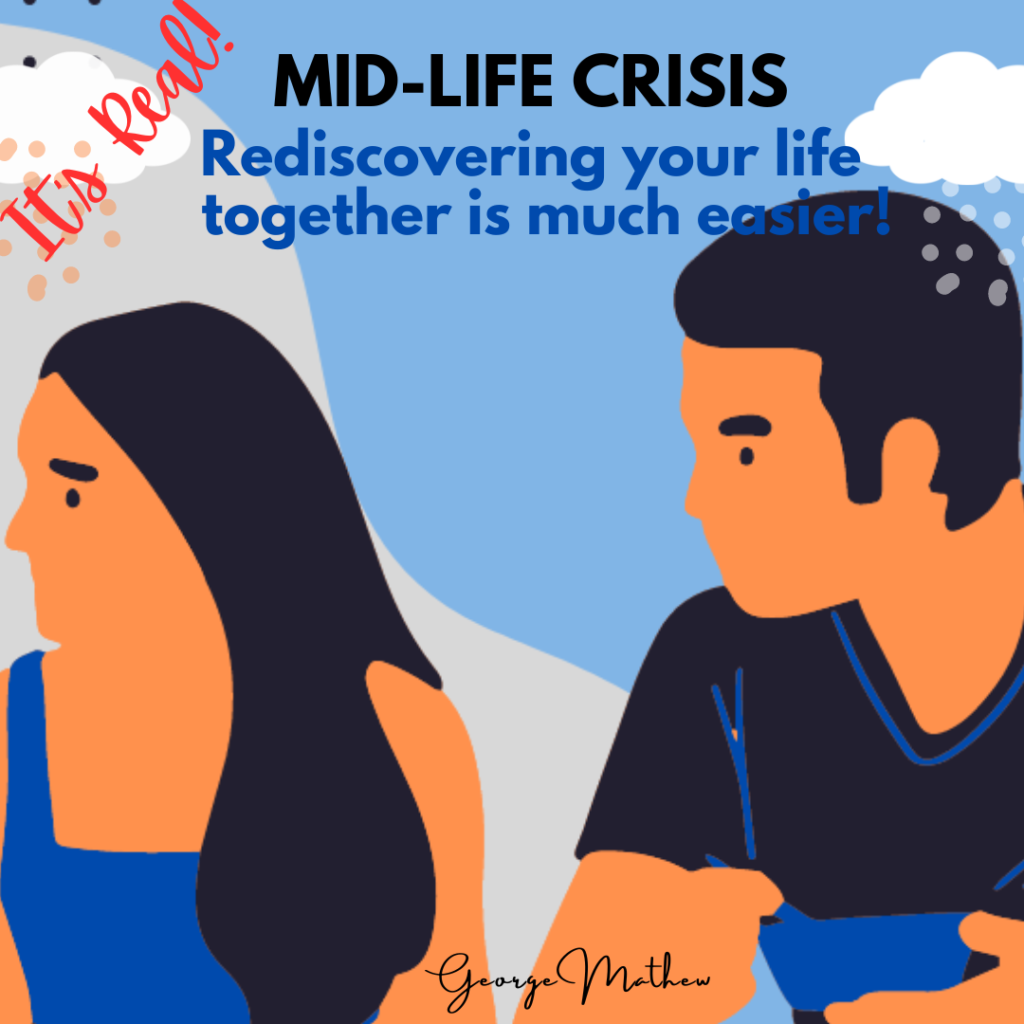
How can a midlife crisis affect a family?
- Changes in Priorities:
- Questioning life choices, impacting family routines.
- Pursuit of new hobbies or interests, diverting time and attention.
- Emotional Turmoil:
- Restlessness, anxiety, dissatisfaction affecting mood.
- Mood swings, irritability, potential depression.
- Desire for Change:
- Impulsive decisions, e.g., appearance changes, risky behavior.
- Straining relationships, eroding trust.
- Communication Challenges:
- Poor communication due to emotional struggles.
- Withdrawal or defensiveness when questioned.
- Neglect of Responsibilities:
- Preoccupation with personal journey, neglecting family duties.
- Tension and strain within partnerships and parent-child relationships.
- Impact on Children:
- Confusion, feeling neglected, affected stability.
- Potential disruption of children’s routines and emotional well-being.
- Financial Strain:
- Impulsive decisions leading to financial instability.
- Stress for the entire family, impacting financial security.
- Role Reversal:
- Seeking validation/support from children.
- Children providing emotional support to parents.
- Potential for Growth:
- Opportunity for personal growth and transformation.
- Family support contributing to navigating this period positively.
- Family Resilience:
- Adaptation to changes fostering stronger bonds.
- Open communication, empathy, seeking professional help.
Remember that the impact of a midlife crisis on family members can vary widely, and seeking professional guidance can be valuable in managing the challenges and maintaining healthy family dynamics.

You have the option to conceal and ignore it, but the truth is, it continues to impact your personal, work, and social spheres. If left unaddressed, it has the potential to weigh you down indefinitely. However, there’s a chance to confront it head-on at this very moment. Seize the opportunity, and schedule a FREE discovery session to take proactive steps towards resolution.
